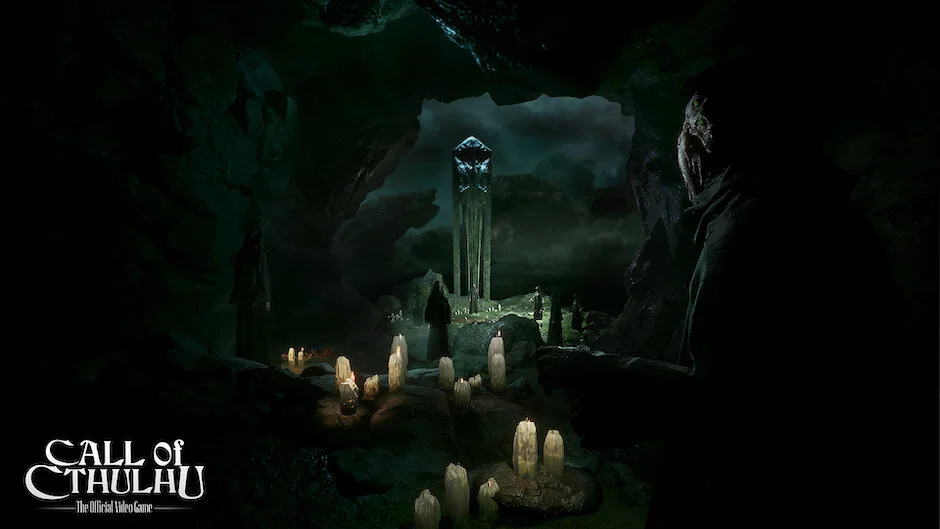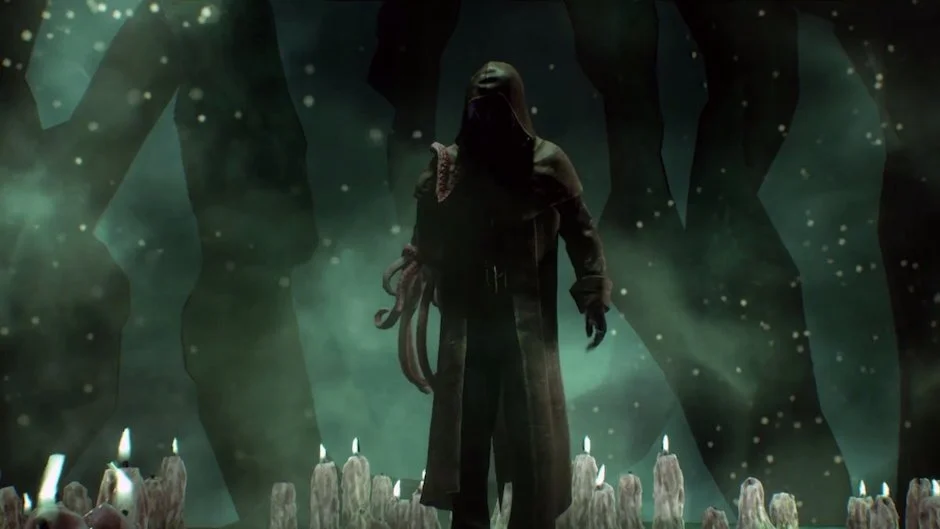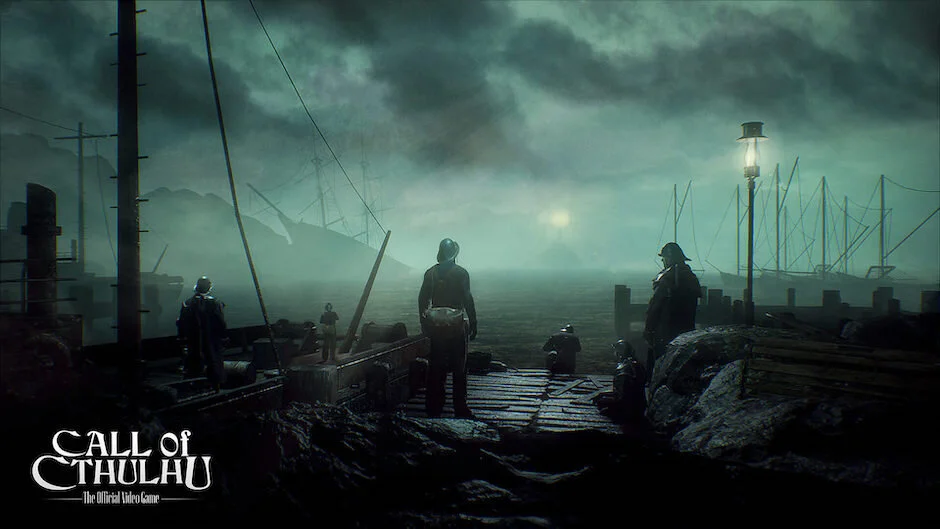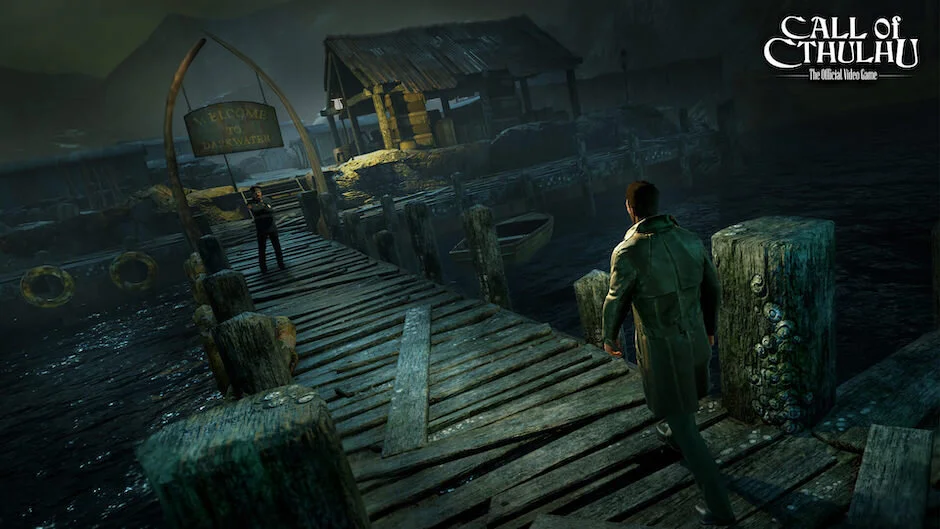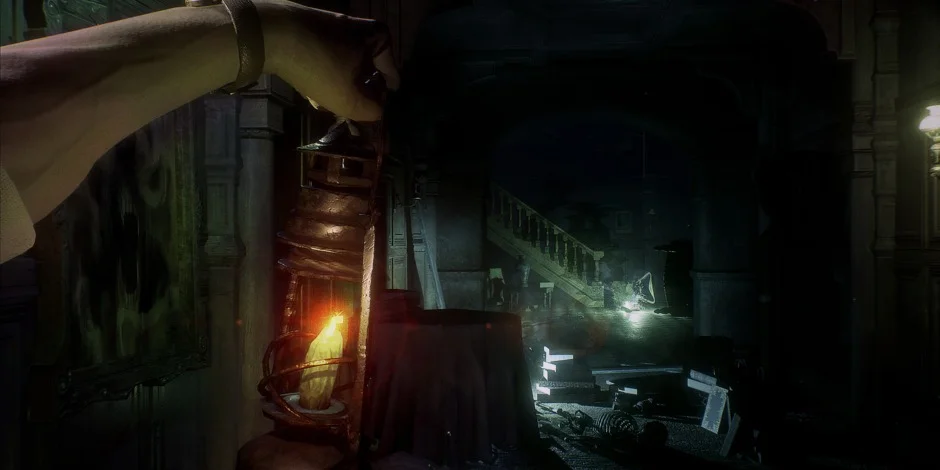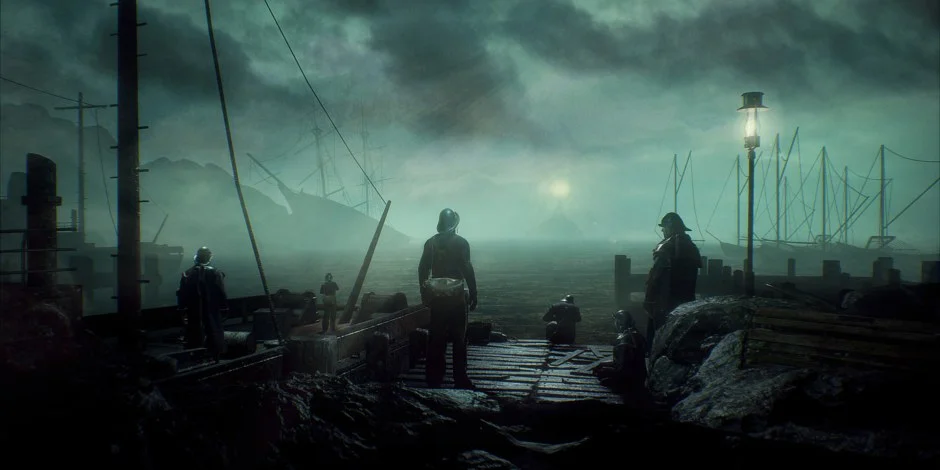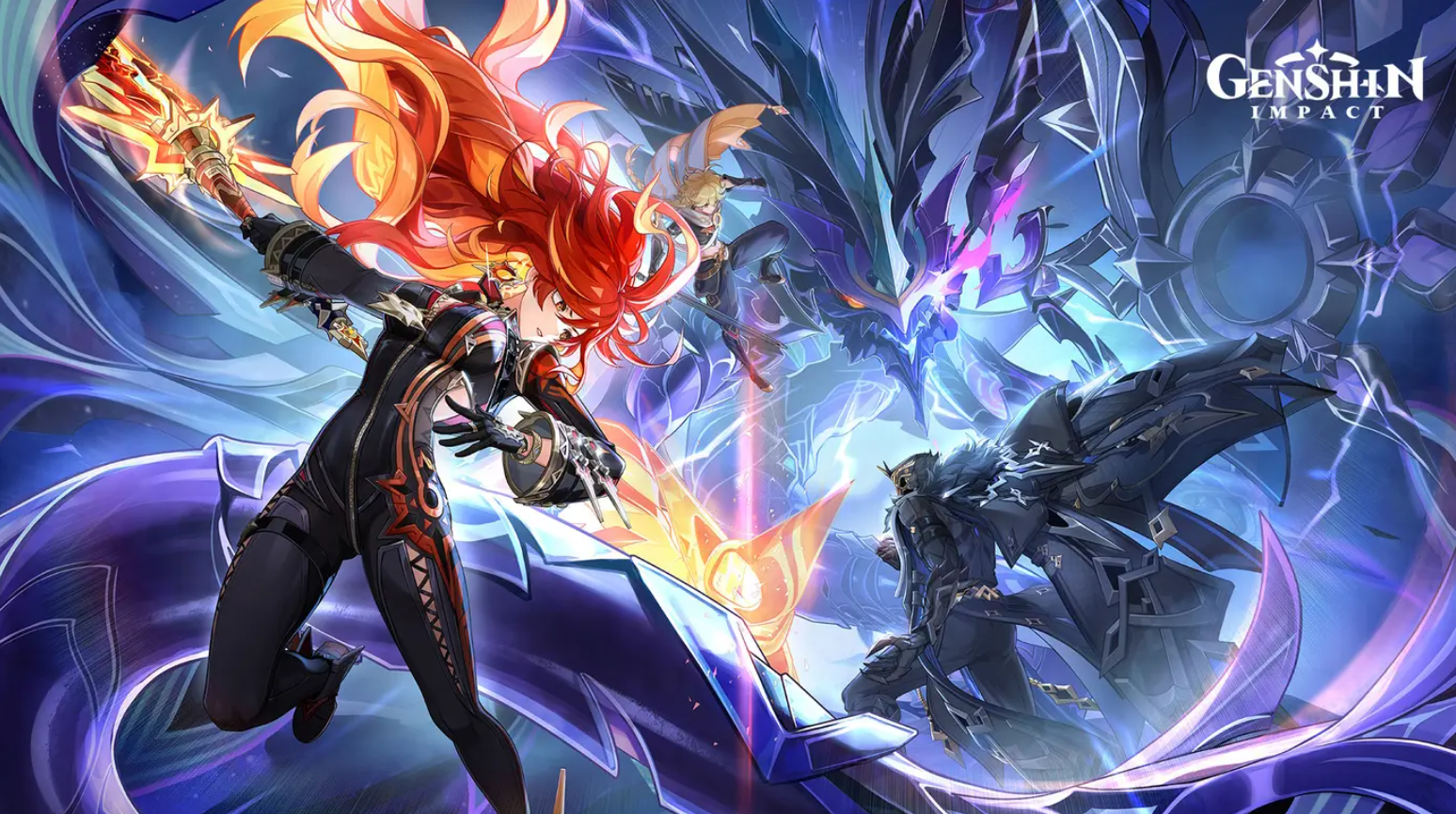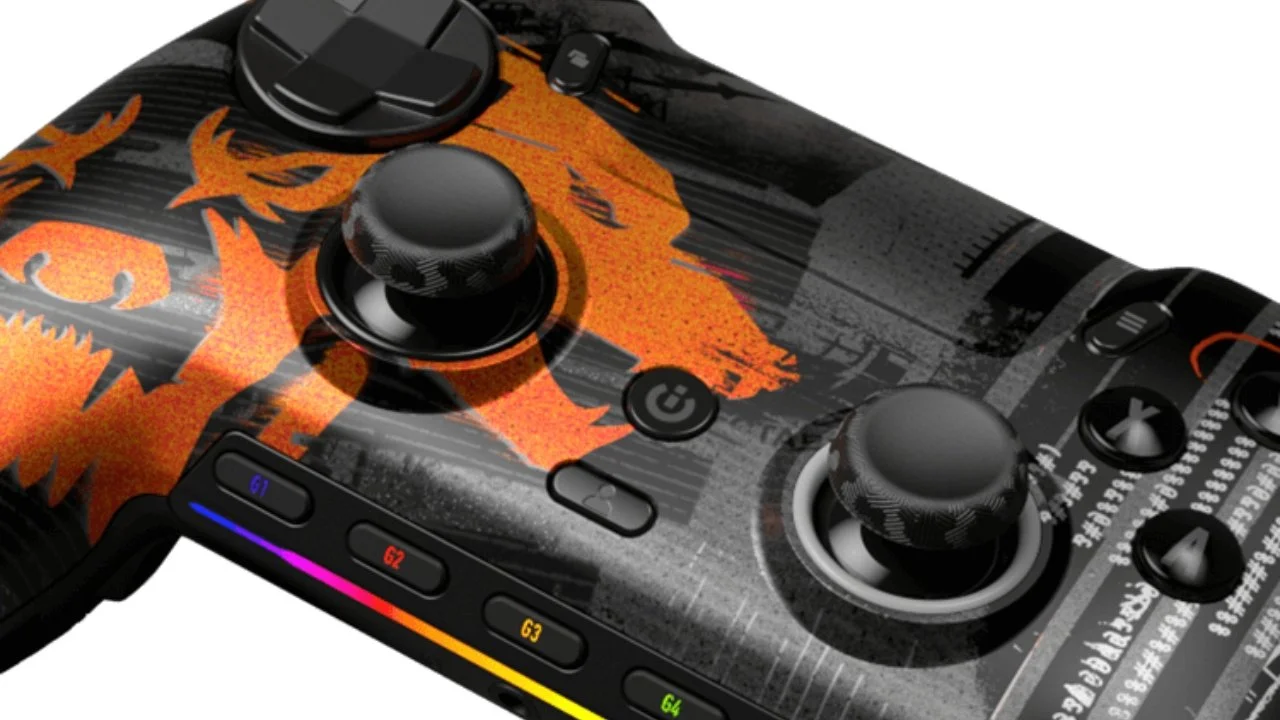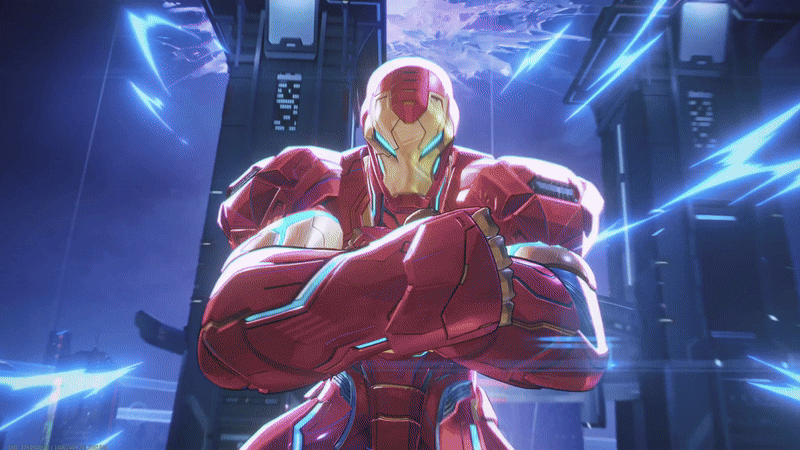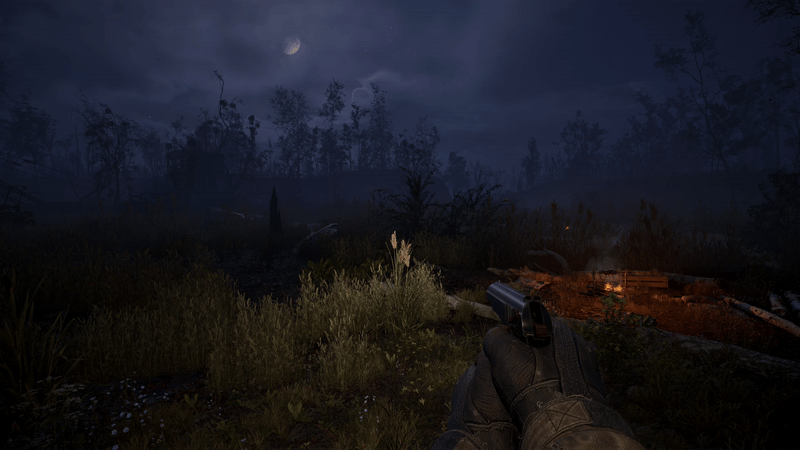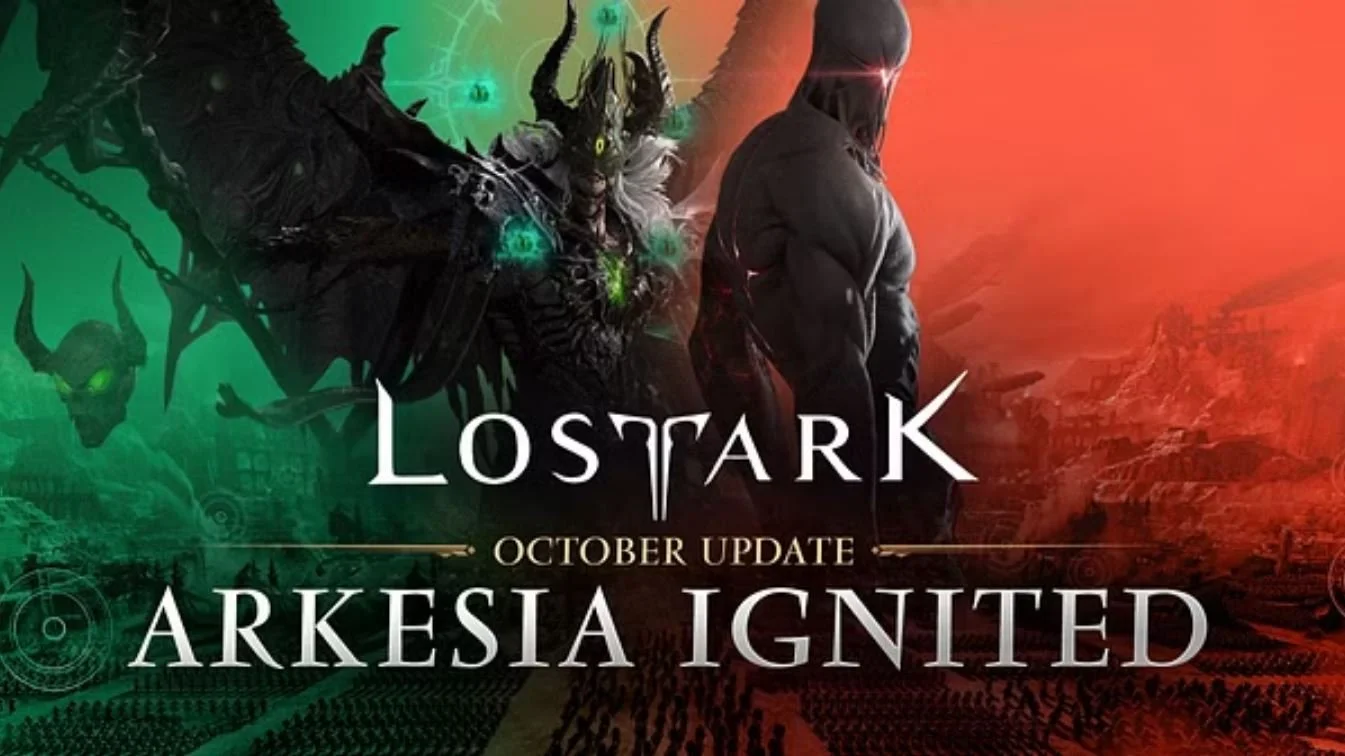Nintendo Switch code provided by Cyanide
Cyanide and Focus Home Interactive delve into Lovecraftian horror with Call of Cthulhu, a survival RPG that implements character decisions to influence narrative endings. It’s the official Cthulhu video game adapted from the classic tabletop RPG experience. Playing as an investigator, you must solve a mystery that will spiral into madness as the secrets of the island are unmasked. Since the H.P. Lovecraft’s The Call of Cthulhu was published, the mythos of the Old Gods has inspired innumerable stories in books, movies, and games. That exploration of the line between sanity and mania, central to so many of those tales, finds another home in Call of Cthulhu. Released on PC, PS4, and Xbox One on October 30th of last year, the horror game is now available on the Nintendo Switch. Our first review of Call of Cthulhu can be found here, but let’s look at how the game has aged over the last year and how it performs on the handheld console.
STORY
If you haven’t read our initial review of the game or you’re unfamiliar with the story of Cthulhu or the horrifying events that comprise traditional Lovecraftian stories, here’s a brief synopsis of what transpires in Call of Cthulhu.
Detective Edward Pierce, a veteran of World War I and a private investigator, struggles with alcoholism and avoids most of the cases that he encounters. He lacks a sense of purpose at the beginning of the game, and only the puzzling circumstances surrounding the fiery death of the Hawkins family can shake him from his stupor.
The Hawkins investigation takes him to the island of Darkwater and things steadily decline once Pierce sets foot on ground stained with the blood of whales and the memories of a twisted past. Inexplicable events and dishonest people will derail Edward Pierce and his search for truth, and it will be hard for the besieged veteran to leave with his mind intact, to say nothing of finding answers.
To say more would reveal too much. The narrative is best when you’re left in the dark, scrambling to figure out what’s happening along with Pierce.
GAMEPLAY
Call of Cthulhu relies on a few gameplay mechanics that will control your experience in the horror story. Character skills are split between different physical and mental traits which will affect your ability to converse with the inhabitants of the island and to interact with the world. Improving those with character points will improve your chances of success in influencing the events around you. You’ll accrue character points from the decisions you make and your progression in the narrative. Beyond those skills, the game is all about the people of Darkwater and the Hawkins investigation.
Other elements of the gameplay frequently got in the way of the story during my time with Call of Cthulhu. For a game that released in 2018, the controls felt poorly tuned. As an investigator, much of the game is spent exploring Darkwater and studying the clues that are scattered throughout the island. Navigation, however, is sluggish. As if you’re walking underwater, there are rarely sounds or vibrations to indicate Pierce’s movements. When striding or running through the environment is the main physical interaction in the game, I wish that it felt more natural. Or, more specifically, it would have been preferable if it wasn’t a mechanic that pulled me out of the narrative.
A glitch, that might be specific to the Nintendo Switch, proved to be the largest detractor while playing Call of Cthulhu. Twice as major cutscenes were triggered, the screen went black and audio played but nothing was visible. And it didn’t resolve independently. The error persisted in docked mode and handheld mode. Only exiting the game allowed me to reload, and I was able to restart at the last save point. Lovecraftian horror depends upon immersion, and in video game adaptations, sensory manipulation is vital to startling the player and to disorienting them with hallucinogenic experiences. If the game crashes with a black screen in crucial parts of the story, that’s more than disappointing. It rips players out of the narrative and lessens the narrative impact.
Long loading times between chapters were another small factor that inhibited gameplay, but that’s a minor issue compared to the crashes.
VISUALS
Sometimes, the game was visually appealing and the cutscenes were animated well enough to develop a convincing atmosphere and real moments of dread. Other times, the poorly rendered character models and the blurry graphics were jarring. The suspension of disbelief was difficult to retain when encountering a world that should be better conceived in this day and age. Video games have come so far in visual design, and Call of Cthulhu already feels outdated.
REPLAYABILITY
Edward Pierce has to make decisions that will “affect your destiny” and the choices that players make end up determining the endings that are possible. There are four endings, but there isn’t a clear way to decipher what is right and what is wrong. The combination of decisions required for each ending isn’t intuitive, so you’ll likely need to research what choices result in which ending before replaying the game. Since there are four endings, though, Call of Cthulhu does have some replay value if you’re looking to finish the journey and witness a different conclusion to the Hawkins investigation and the fate of Darkwater.
WHAT IT COULD HAVE DONE BETTER
Unfortunately, a lot. The game crashes are a major concern. That needs to be fixed as soon as possible. After that, gameplay and visuals deserve more attention. The mythos of Cthulhu and the Old Gods demand terrifying visual effects and an immersive game. If Cyanide and Focus Home Interactive want to create a more compelling narrative, they’ll need to reassess their development process.
VERDICT
Everything in Call of Cthulhu attempts to bolster the power of the story, but there were many moments when I felt the game was preventing the narrative from taking hold. Several times I thought that the journey of Edward Pierce through the madness of Darkwater would have been a better movie than a video game. If you’re a fan of the horror genre, then I think you’ll appreciate what Cyanide is trying to do here, but in numerous aspects, primarily gameplay, the adventure stumbles rather than shines.
